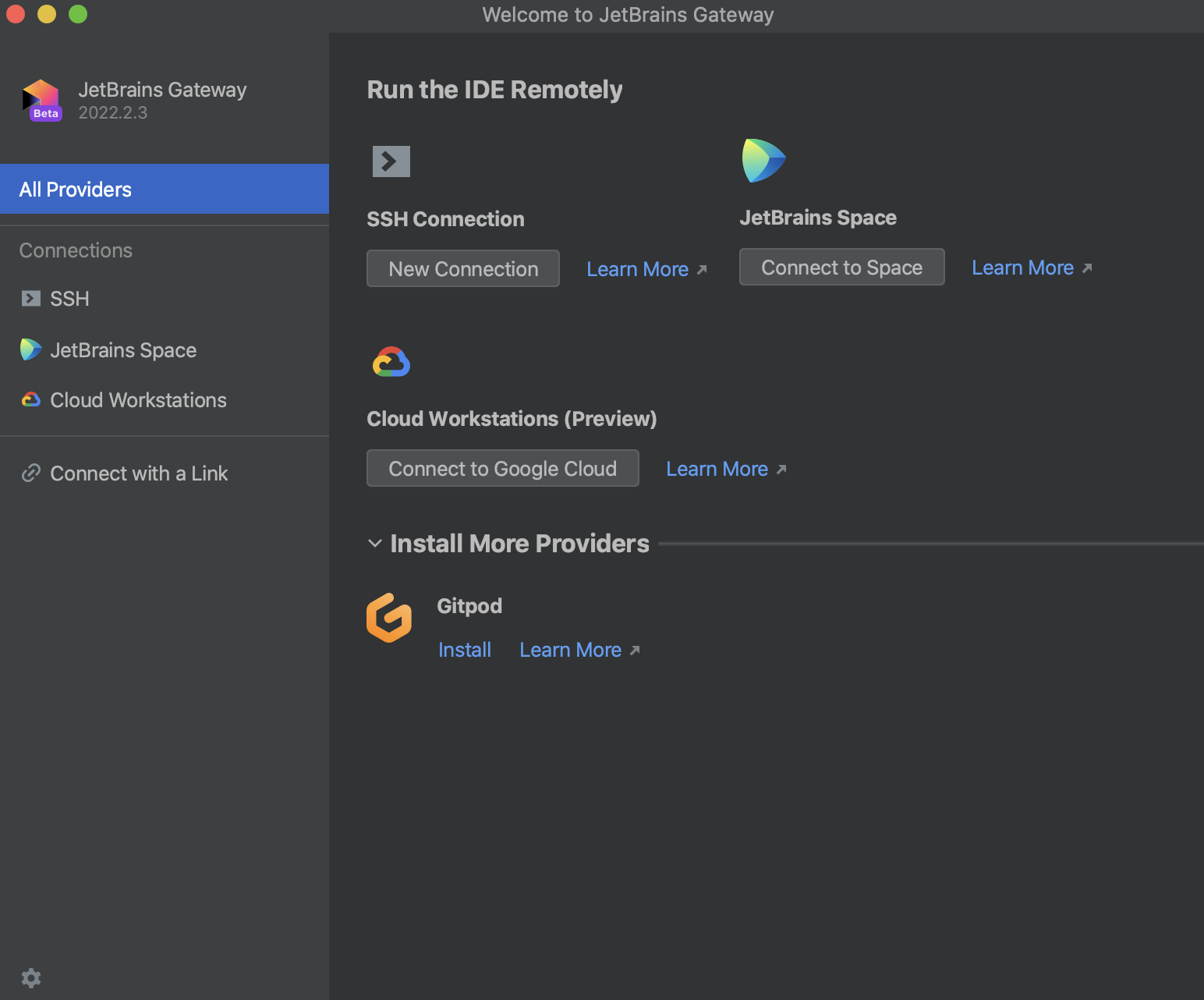ProfessionalConnect to a remote server from PyCharm
Last modified: 09 August 2022Since working remotely became a necessity, PyCharm offers the Remote Development functionality to help you code, run, debug, and deploy your projects remotely.
Prerequisites
Before you start developing on the remote machine, make sure you have the following:
Remote machine (a target for an IDE) meets the minimum recommended requirements that can be found in IDEs articles.
note
Since JetBrains Client is a thin client lightweight application, the requirements for disk space and computer resources are lower than for a host.
You have installed a compatible SSH server on the Linux platform.
note
The server part is self-contained, so no special dependencies should be installed. It will also run on any
glibc-based Docker image (that is, not on Alpine).The Linux platform has any recent Linux AMD64 distribution such as Ubuntu 16.04+, RHEL/Centos 7+, and so on. There is no arm64 support yet. We recommend using machines with 2+ cores, 4GB+ of RAM, and 5GB+ of disk space.
You need to have the sftp subsystem enabled on the remote host. In the current implementation, we use it for the backend deployment.
Connection via SSH
The connection to a remote sever is done via SSH and can be started right from the welcome screen of PyCharm.
Connect to a remote server and open the remote project
Ensure you have the Remote Development Gateway plugin enabled.
On the PyCharm welcome screen, select Remote Development.
In the Run the IDE Remotely section, click SSH Connection.
If you have the IDE already running on the remote server and you have a connection link, you can use the Connect to Remote Host With a Link section.
Configure the remote server connection parameters and click Check Connection and Continue to make sure the connection to the remote server is successful.

On the next page of the wizard, in the IDE version field, select the source of the remote IDE that you want to use.
Use one of the following ways to get an IDE installer:
Automatically fetch from JetBrains installers storage -default variant.
Your remote server must have a network connection to JetBrains URLs:
https://code-with-me.jetbrains.com https://download.jetbrains.com https://download-cf.jetbrains.com https://cache-redirector.jetbrains.comFetch from your company's internal storage. In this case, you need to click Other options and select Use download link. It is helpful if remote machines don't have an Internet connection to JetBrains' websites or your organization uses some custom builds.
Upload from your local machine. In this case, click Other options and select Upload installer file. You need to get the IDE
.tar.gzarchive from the JetBrains website by yourself in advance.
note
Since PyCharm versions 2022.1+, you can also select a custom path on the remote side for the unpacked backend installer. Use this option if a default directory doesn't have enough space.

Click Download and Start IDE.
PyCharm starts JetBrains Gateway, which downloads the IDE backend, launches, and opens JetBrains Client with your remote project.
For the information on how to start working with a separate JetBrains Gateway installer, refer to JetBrains Gateway.
For the information on how to add plugins or SDK, refer to the appropriate Getting Started section.
JetBrains Gateway is used as an entry point to connect to a remote server via SSH. It launches JetBrains Client, which is a thin client that enables you to work with your remote project.

You can use one of the following ways to launch JetBrains Gateway:
Use PyCharm and the enabled Remote Development Gateway plugin in it. In this case, when you open the PyCharm welcome screen, the Remote Development option will be available immediately and you can connect to your remote server using SSH.

Install JetBrains Gateway using the JetBrains Toolbox App.

Manually download and install JetBrains Gateway app.
Depending on your local OS, use one of the following installers:
macOSmacOS Apple SiliconWindowsLinuxDownload the JetBrains Gateway 2021.3 .dmg.
Download the JetBrains Gateway 2021.3.dmg.
Download the JetBrains Gateway 2021.3 .exe.
Download the JetBrains Gateway 2021.3 .tar.gz.
Thanks for your feedback!